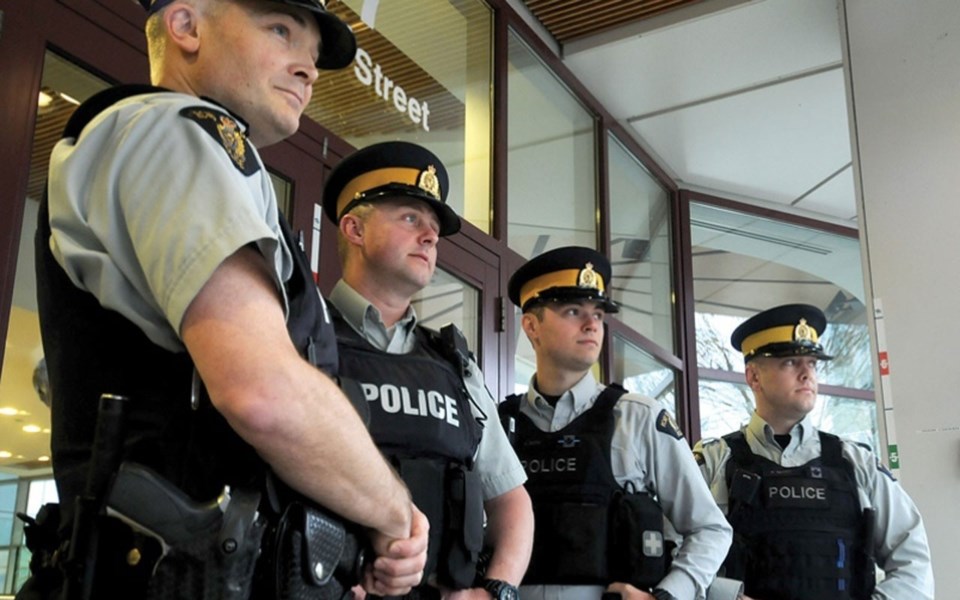RCMP members across the country, including the 120 or so who serve and protect North Vancouver, have voted to unionize.
The National Police Federation announced Monday that its 18,000 members and reservists would begin collective bargaining with the federal government following a 97 per cent vote in favour of unionizing.
The march toward organizing a union has been on since 2015 when the Supreme Court of Canada found a rule prohibiting Mounties from collective bargaining was unconstitutional.
It will take some time for the fledgling union to get up and running, but one of the main bargaining points will be pay disparity with municipal police, said Brian Sauvé, co-chair of the federation.
A first class constable from North Vancouver would be paid about $14,000 per year less than a Vancouver colleague of similar rank, Sauvé said.
“That’s kind of consistent across the Lower Mainland,” he said. “How much overtime do you have to work to make up that shortfall in order to provide quality of life for your family and how does that impact your work-life balance?”
In 2017, members of the North Vancouver RCMP staged a protest over low wages by reporting for duty in pants lacking the traditional yellow stripe down the leg.
Staffing levels are also a concern, Sauvé said, with RCMP members routinely having to come in early or stay late to file paperwork. And some members are also forced to transfer every five years, which makes the force less desirable.
Unionizing will likely mean the cost of policing will go up, though there is no predicting by how much, Sauvé acknowledged.
“It is an expense. There is no ifs, ands, or buts. Public safety comes at a cost,” he said. “But what do the citizens want? Do they want to attract the most qualified candidates? Do they want to retain those with experience? Or are they willing to pick those who go to the RCMP because they didn’t get hired by Toronto, Vancouver, OPP, Delta or New West?”
And, Sauvé added, the federal government subsidizes 10 per cent of the policing costs for municipalities with RCMP contracts.
For 2018-2019, the North Vancouver RCMP had a total budget of $33-million, 38 per cent of which was spent on members’ salaries. Under the cost-sharing agreement between the City of North Vancouver and District of North Vancouver, the city paid 46 per cent of the bill while the district picked up 54 per cent.
In a statement, city spokeswoman Connie Rabold said it was too soon to say how collective bargaining would impact the average property tax bill, but she added the city’s finance department has been planning for such an outcome.
“The city has been putting funds aside for a salary adjustment for the past several years. An increase of $14,000 per member would increase the cost of our policing service by approximately $800,000, which would potentially be funded from dedicated reserves and/or a tax increase,” she said.
City Mayor Linda Buchanan said the change is not inspiring her to reconsider a move to a municipal police force for North Vancouver, similar to what Surrey is now doing.
“I am not looking at that option, no,” she said.
District of North Vancouver staff declined comment, saying it was too soon to know how the district’s budget would be impacted.




